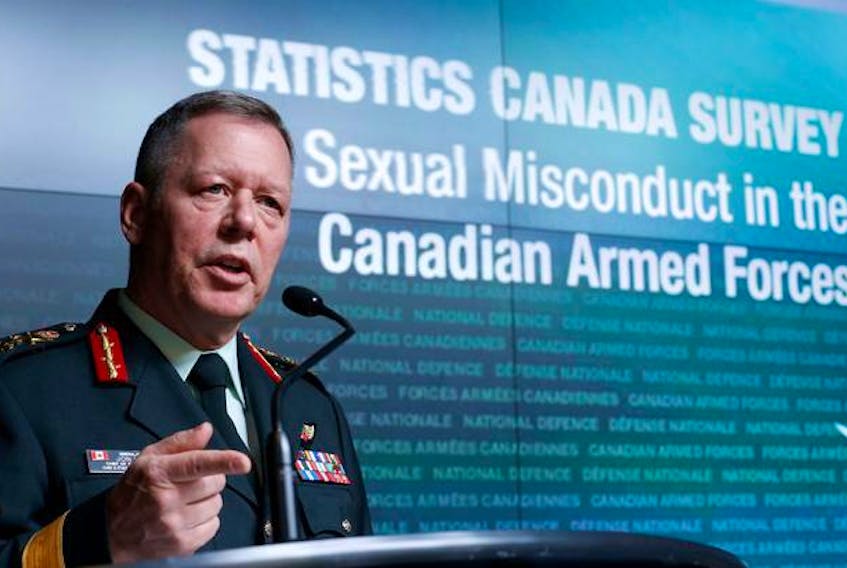Last week, the Canadian military launched a new initiative to confront what the senior brass call a wicked problem in the form of sexual misconduct within its ranks. This most recent plan is called The Path Towards Dignity and Respect and unlike previous campaigns this one does not promise any short-term success.
“There are no quick fixes for achieving culture change. It requires sustained effort and continual assessment to ensure that we remain on track,” wrote Gen. Jonathan Vance in the foreword to this new plan.
Keen-eyed readers will recall that it was this same Gen. Vance who launched Operation Honour to stamp out sexual misconduct in the CAF over five years ago when he was first appointed chief of defence staff.
Over a half-decade later, it appears that Vance now realizes this is not a problem that can simply be ordered to disappear.
The genesis for these latest efforts to eradicate sexual misconduct from the CAF began with a damning series of news media reports back in 2013. The stunning public revelations led to the commissioning of an independent inquiry by former Supreme Court Justice Marie Deschamps.
After a thorough investigation, Deschamps tabled her report which depicted the CAF to be steeped in a highly masculine sexualized culture, wherein military leaders turned a blind eye to misconduct.
It was in response to Deschamps’ findings that Vance launched Op Honour.
The two-fold objective of Op Honour was to clamp down on any alleged perpetrators while simultaneously establishing a support network for the victims.
This Vance-led initiative was initially praised for bringing forward many more reports of sexual misconduct. The official positive ‘spin’ on this phenom was that it indicated a renewed faith in the system to arbitrate justice and properly support the victims.
However, the reported incidents just kept coming, so five years later Op Honour is now the Path Towards Dignity and Respect.
Most tellingly, the new directive states outright that this latest campaign “will have no end date and will remain as an enduring mission for the CAF.”
The target will no longer be to react to incidents of sexual misconduct after they occur, but to instead aim to change the very culture of the CAF in which members feel such behaviour to be acceptable.
Architects of this new pathway to change believe that the key to success will be through education.
I believe that one of the first things they should teach on these courses is just how far the military ‘culture’ has already changed in just a few short decades.
Between 1950-1971 women were allowed to enlist in the military but the number was capped at a maximum of 1500. The reason for this was the CAF did not want to overly ‘feminize’ the institution.
That cap was lifted after 1971 but women were mainly employed in non-combat roles such as medical, communications and administration.
Admission of women into combat arms trades began in 1987 and by 2001 the last male-only bastion was breached and females were allowed to serve aboard submarines.
What this means is that there are practically no service-members still in uniform that will be able to recall those ‘male only’ days of old. Virtually every serving soldier and senior officer has spent their entire career working within a mixed gender environment.
Those who served in Afghanistan witnessed male and female soldiers fighting and dying alongside each other.
One has to hope that the forging of such trusts and bonds will soon replace what remains of the former highly masculine, sexualized culture that Justice Deschamps revealed in her report.
I, for one, want to believe that the CAF is already further down their projected new path than the numbers would indicate.









